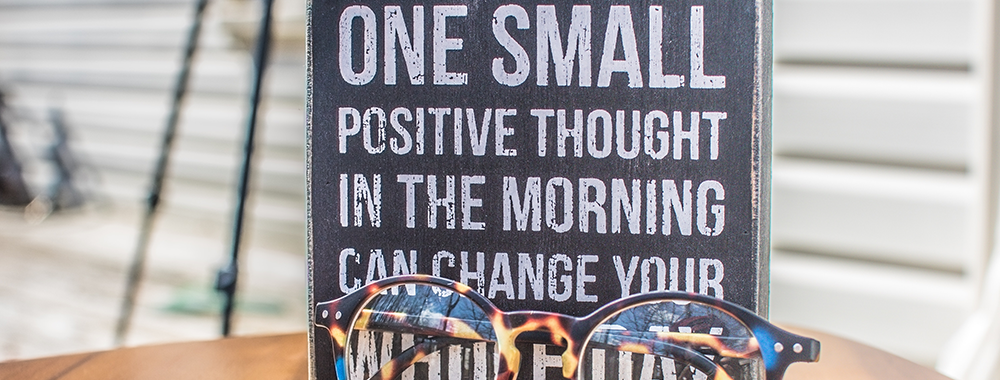
Many of you may balk at the thought of positive thinking or feel it is childish to look for the positive all the time. I want to counter that assertion by training your brain to start with positive thoughts rather than negative ones, which will improve all areas of your life. Consistently practicing positive thinking and being intentional about finding the silver lining will cause your brain to start thinking positive without even trying.
Did you know there is a whole area of psychology referred to as “Positive Psychology?” It is a relatively new branch of research in which psychologists have spent over twenty years studying the effects of positivity, mindfulness, optimism, gratitude, and other topics to “enhance client’s strengths, virtues, and capacities, rather than repairing weaknesses1.”
What! Taking the time to find peoples strengths and building on them makes so much sense to me and my brain.
When I was first exposed to this research, I was blown away. In my Doctorate education we were trained to always look at what the research had to say about a topic before truly forming an opinion. So, having this body of evidence to wade through has been truly amazing.
Some individuals, by nature of their personality, are going to have an advantage towards positive thinking. Other individuals are going to have to be a little more intentional to work towards changing how they think. Positive thinking is separate from our emotions or behaviors; it is a skill.
Anyone who knows anything about learning a new skill knows it takes discipline, lots of practice, making mistakes, and persistence to master that skill.
Researchers Bekhet and Zauszniewski (2013)2 outlines 8 skills that contribute to positive thinking and gave it the unique acronym “THINKING.”
- Transforming negative thoughts into positive thoughts
- Highlighting positive aspects of the situation
- Interrupting pessimistic thoughts by using relaxation techniques and distraction
- Noting the need to practice positive thinking
- Knowing how to break a problem into smaller parts to be manageable
- Initiating optimistic beliefs with each part of the problem
- Nurturing ways to challenge pessimistic thoughts
- Generating positive feelings by controlling negative thoughts
Looking at that list, I get almost giddy thinking about how much impact this could make if we all start being more intentional about positivity. This world would be a happier place if we all assumed everyone was doing their best in all situations.
Example: I get cut off while driving. I’m mad and spend the rest of the drive home being annoyed. I get home; I’m still annoyed and snap at a family member out of agitation. Instead, if I consider that person may be rushing to avoid being late for work so they don’t lose their job, running behind for a child’s event, or possibly trying to get to a loved one before they pass away, then I am no longer upset and hoping the best for that person. Regardless of the actual situation, I am a lot happier.
I want us to stop letting a 10 second bad moment ruin the rest of our day. I am the first person to admit I get so irritated if I had planned on something happening one way and then it happens differently. Even if it’s not a bad way, it wasn’t how I planned. I feel the frustration rise and in those moments, I remind myself that there is still positive in the situation even if it didn’t go as I intended.
Those little moments add up to almost nothing over a lifetime; however, if you are a negative, easily aggravated person, it can affect all your relationships. Does anyone have that one friend they try to avoid, because all they are is negative?
Positive thinking does not come natural for many people and that is why it is a skill that needs to be practiced. Capture one negative thought at a time and change it. Listen to the negative things you say and correct it. Practice being thankful for all things big and small. Being intentional is the only way you are going to be successful with this change in thinking.
This may look daunting or maybe it looks like a fun project. I encourage you to spend some time with your thoughts and work on it. Conduct your own experiment. Set a certain time and observe yourself to see how it goes. I promise you won’t regret it. Here’s to a happier 2021!
References
- Lino, C. (2020). Positive Psychology: An Introduction. Blog Post. www.positivepsychology.com
- Bekhet, A. K., & Zauszniewski, J. A. (2013). Measuring use of positive thinking skills: Psychometric testing of a new scale. Western Journal of Nursing Research, 35(8), 1074–1093.